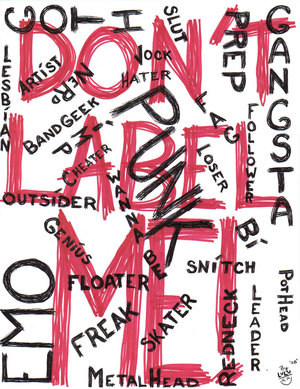Hello everyone. I'm back.
I left my stories behind just after I finished O Levels. I expressed my anxiety and fears. It turned out I needn't fear.
I graduated the top student in English Literature for 2010, with a perfect L1R5 score. I debated between Raffles Junior College and Victoria Junior College (capitulating to the fact that my Chinese stinks and I might as well enjoy myself and truly belong in a more 'English' environment) and ended up choosing Victoria which was a mere 20 minutes away by bus.
I won't lie. It hasn't been a very smooth journey. So to all the prospective O level students who are reading this in hopes of a glimpse into JC life, please look forward to the myth-busting about JC.
Did your teachers tell you that O Levels is manageable but you needed to study hard so you get into a good junior college?
Partly true. O Levels were manageable compared to the A Levels. I'm perfectly serious, even if you think that right now I'm just being patronising, speaking from the high throne of "great experience". Alright then, hard proof. I took Biology (because I loved it!) for O Levels and A Levels, and I can tell you that my file of notes for a single years' notes for Biology in JC is equivalent to four times the thickness of the O Level Biology textbook. To fully understand the implications of this, consider the functions of the textbook. It records facts and concepts you need to learn for the major exams. Definitely, in order to pass the Os with flying colours, content mastery is the basic prerequisite. You will be cramming two years' worth of content for your O Levels.
Now, consider the fact that my file of notes for ONE YEAR is FOUR TIMES the thickness of your O level textbook. Definitely, this means you will have to master content in greater complexity and quantity than ever. And yes, you do have less than two years to do it since the A Level exams start in November. Your memory will be pushed to the limit, and so will your stamina and discipline. Trust me, you'll need it.
Unfortunately, content mastery is simply the basic prerequisite. Perhaps now, more than ever, you start to feel the heat and rigour of O Levels, which is ten times more arduous than PSLE. If PSLE tests recall, and O Levels requires you to recall facts and apply them to certain situations, A Levels will be nasty. You will have questions on situations you have never learnt before in your notes, and to answer, you'll simply have to use your content knowledge AND link this knowledge to the situation provided. This application of knowledge is definitely called for more so in the A Levels than the O Levels.
Now, on the JC thing. I am not entirely sure I have sufficient authority to speak on the matter given that my experiences are coloured by the fact that I am in one of the top JCs in Singapore. However, simply being in a good junior college is not the end-all to your problems. It does not ensure a completely smooth course to university and your chosen career. What I am saying is your JC experience and achievements will solely depend on your discipline, strategy, outlook and degree of participation in activities. There will be no one handholding you and chasing after you for missed assignments. Yes, you can skip lectures, and I readily admit I have done so, especially in the latter part of the year where revision lectures were going on and I had a Biology test to study for. The onus is on you to make the most of your JC life, and make your future.
I know people - classmates, friends, friends of friends - who didn't do well enough at A Levels to go to university. Yes, that can happen, and will happen if you do not put in effort to study. We have already established that the content load in JC is many times more rigorous and challenging than that of O Levels - and to master said content, time has to be invested proportionately. You thought O Levels was bad? At JC, every day was O Levels - I have never studied so hard in my entire life! This lamentation then became one of the most frequently uttered and groaned in varying degrees of exhaustion, irritation and hysteria, especially when deadlines are looming and you have three essays due.
I didn't get the most out of my JC experience. I say this because VJC is known for its 'fun' spirit and emphasis on 'work hard; play hard'. While all my classmates and friends can certainly testify to the former, there are far fewer who agree to the latter. My experience was all about working hard: I stopped going out on weekends to finish my numerous Math tutorials and Literature essays. I studied or did homework during breaks, right after eating. Everyday, I did homework till finally collapsing into bed at night. Unfortunately, such mental exhaustion does not naturally resolve my insomnia issues, which I came to accept.
Are you afraid now? Don't be. There are opportunities, but I didn't take them simply because I am an introvert. VJC is all about camaraderie and supporting each other - we will have chartered buses to take us to sports events where our schoolmates compete, impromptu cheering after the pledge is recited, celebratory occasions where the teachers' band will perform. We will have concerts to organise and participate in, the famous music fest, and assorted carnivals. We will have long runs for charity and opportunities to go overseas on exchange. We will have class dinners and lunches, even breakfasts. We will celebrate birthdays in the loudest of ways: in class, in the canteen with a cake. We will have class outings on e-learning days where we were supposed to stay home to learn but we decided we'd much rather learn about Harry Potter and the Deathly Hallows. We will also have weeks off for Project Work (the A-level subject), where we could organise our own schedules - it could be work in the morning and a movie in the afternoon. The opportunities are there and dizzying. There is greater flexibility and leeway, greater school spirit and fun to be had.
I did have some fun, but I worked like crazy. It was simply one commitment after another. I participated in the Writers' Circle, Subjectif (which was the school newsletter everyone either ignored in their imboxes or never heard of), and much later, the infamous Garden in a Bottle project a.k.a myplnt. In some ways it was fun, and my efforts paid off: I became the vice-president in Writers' Circle, a student facilitator where I taught an A-level Biology topic to my peers, and a student leader of the marketing department of myplnt, where we manufactured bottled plants growing in special agar and sold them in public spaces. At the World Orchid Conference of 2011, we sold all our stock and even got business offers!
When summarised into pithy sentences, my experiences seem fun. In some ways they were. In most ways they were gruelling. Behind the scenes there was planning and editing, organising and liasing with vendors for market spaces and works done.There were the folding of boxes and the packaging, there were the intensive training sessions where we had to master the content and more in order to educate our peers. I remember days where we stayed back to make that stupid video for our students' elearning, where we answered questions on the interactive platform and researched the mysteries of radiation and mutations. Apparently radiation will cause adenine and thymine to be more 'sticky', so during protein synthesis the polymerase cannot 'read' the base and will simply substitute another base in place. This is a mutation - it can be silent i.e. does not show any effect because either the protein is non-essential or the amino acid made has similar properties to that of the original, a truncated protein if a stop codon is made, or a nonsense mutation where a completely different protein is made which will alter cellular physiology. It was a lot of hard work.
Happily though, I should think the commitment is less than sports, music or dance CCAs, so I did get a rather impressive resume despite investing less effort.
JC teaches you how to think and reason. My academic writing has improved leaps and bounds. The first term, you think it is challenging, but please, you've barely started. If the difference between PSLE and O levels is a gap, the difference in rigour between Os and As is a gulf. You will struggle with the content and get confused. You will find yourself having to sacrifice some sleep and weekends to get tutorials done. You will stare with devastation at your first test results. And it will get worse, before it gets better.
On my first major Chemistry exam, I earned a 60 out of 100. The scores only dipped from the first term. I started to just borderline pass Chemistry, despite my stellar grades in O Level Chemistry (and yes, I did get that A1. I loved Chemistry).
I struggled and panicked and practiced my way to get a C at prelims. I thought I was done for. I had no hope ever of getting an A at A levels. Despite that daunting thought, I struggled and persisted in completing the five year series and the prelim papers of other schools during the month-long study break. You think one month is more than sufficient? It isn't - I actually had to get up early at 6 a.m. every day to study, and sleep promptly (or as much as I was able) by 11 p.m. I cooped up in my room, which by then was a forest of notes, past year exam papers, answer keys and post-it notes covering facts I kept forgetting. I memorised my notes from the start to the end, drawing countless diagrams. It did pay off - to my great astonishment I got an A for Chemistry at A Levels, despite my fears.
You will struggle. My story has a happy ending: I worked hard and it paid off. I graduated with straight As, and would have gone up on stage if not for that irritating B3 for Higher Chinese at O levels.
Secondary school students can stop reading here, because this is where things get personal.
I did it. I'm still pretty shocked today by my string of As because to my mind I couldn't have done so well, especially for Chemistry and Mathematics which I was weakest in. I found the exam papers difficult, though I managed to complete them on time. I made my share of careless mistakes. Results day, and I was a bundle of nerves, shaking legs and cold hands. The moment in the hall when I screamed with joy upon seeing my certificate is one I will always remember - the relief, the knowledge that all the doors were flung wide open and the tears of joy. I had opportunities. Law school became a distinct possibility, along with medicine. I applied to Law and Dentistry, as well as the scholarships. Meanwhile, I secured internships, working at law firms while taking leave intermittenly to prepare my applications, go for interviews and do a spot of travelling.
What followed was sadness and uncertainty.
I knew it. Early May, the letters of offer would be released. I received one from SMU Law, one from Yale-NUS College, and exactly none from NUS Law. On 8 May where I received a call to attend the concurrent degree interview, I knew what happened.
There is no concurrent degree for law.
There is, however, a concurrent degree program I listed as my third choice: NUS Business Administration (Accountancy) + Masters of Science in Management.
Law school was out. Either the interviewers found me lacking, or my essay was not good enough in the reasoning test. I was in denial. I refused to believe it.
That denial was abruptly shattered on 21 May, when I received an email of congratulations from NUS inviting me to a tea session at NUS Business School.
I was devastated. I was in Taiwan then, when I decided to check out the news on my phone. I was still in denial, hoping against hope that I would get into NUS law school. I cried.
27 May 2013, and I received a letter of congratulations telling me I had a scholarship to study Accountancy. Though it is indeed an achievement, I didn't feel any joy - just bitter irony. I got what I wanted - but not for the course I wanted.
1 June was the deadline. I has a mere 5 days to decide what the hell to do with my life.
Those days were stressful. I cried and sobbed and was generally a wet blanket. I asked friends for advice. I asked God. I asked my parents - both of different opinions. One said the scholarship was a magnificent opportunity and a career boost. The other told me to do what I liked, because a scholarship cannot change the bitterness of misery.
I ended up choosing the scholarship, because I didn't really like the impression SMU gave me, because it is reputation-wise not as strong as NUS, and because I found commercial law boring - heck, looking at the titles just turns me off. Thus, it is indeed great irony that I will study what I know I won't like.
I admit it. I regretted it and it agonised me, haunting me in my waking hours. I knew it wasn't right - intrinstically, I rebelled at the thought. Those days spent at law firms - I was kissing it goodbye forever. Today, this knowledge that I am my own misfortune still haunts me. My heart twinges at it. I know I have made a mistake.
I could have gone to Yale-NUS College, which logically is the best choice given my talents, personality and the fact I needed time to grow and discover myself, but I didn't. The opportunity of tapping into Yale's extensive network slipped by.
As I flip through the matriculation packages, the Yale-NUS one tugs at my heart. I could have gone, I could have been.
So much regret, so much tears.
I had plenty of breakdowns. I cried, I regetted, I tried to find an escape road. Now, applications for UK universities are still open. I still have a shot at school in Exeter and Bristol. But -
I don't know.
I'm too coward to take the risk of spending 40,000 euros a year (which is more than my accumulated tuition for my offered degree in Singapore), for something I may turn out not to like.
I'm too coward to take the risk of living in a foreign environment and going where people are so different from me and each day is an exercise in culture shock.
I'm too coward to ask my parents to pay for my tuition because it is very difficult to study and work at the same time. Exeter is top-tier, unfortunately, it isn't as well-heard of in Singapore. Would I be able to get into the Magic Circle? I don't know.
Too coward. Too stupid. Too foolish. Too blinded.
Everyone tells me to accept my choice. It's quite difficult even if I know I am letting my opportunities slip past.
I am my own downfall. This thought, this regret at letting opportunities pass by drove me into depression. I thought of suicide and did have the urges on a particularly bad day. (even if it is not as serious a situation as most suicides.) I was diagnosed with mycoplasma.
But today I still live on. I am glad that I was too much of a coward to actually jump, and too methodical to just die impulsively. I planned extensively, wrote the note. I planned to go on my birthday. The circularity amused me - born and died the same day. It would be as if I never existed.
Today, I am alive. Today, at least, I feel cheerful and hopeful and I don't think about suicide and death. Possibly it's mania because I am feeling invincible now.
So this post ended on a personal note. It is no longer a note to secondary school students. It is a confession of truths I am afraid to tell - my suicidal thoughts, the knowledge that something is wrong with me, the crying jags.
This is the reality I am living. This will be the story of my present reality, recorded for prosterity on the Internet. Should prospective employers see this, then may this let them know: Today, I have conquered my own mind. I have lifted myself from the pit. I have struggled and cried but matured along the way.
I win.






